Part of what makes science fiction fascinating is that it takes the seemingly impossible and turns it into something that we can’t help but believe. Sure, all fiction does a bit of this, but science fiction has a knack for convincing our minds as well as our hearts that these stories must have a bit of truth to them.
The “science” part of science fiction lends the genre’s stories a certain realism. That’s especially true of hard science fiction, the subgenre that puts a premium on true-to-life scientific explanations. In hard science fiction, everything seems real...including the stakes. So you can count on hard science fiction stories to get your heart pounding.
If you’re ready to get hooked on hard science fiction, start with one of these 11 books.
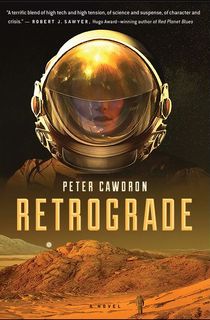
Retrograde
Retrograde puts us on Mars with a team of 120 experts. The astronauts, scientists, engineers, and doctors of Cawdron’s realistic Mars colony are based underground: the safest place for a Mars colony, Cawdron reasons—and in the face of his science you’ll quickly agree. Though they’re sheltered from all kinds of harmful things, nothing can protect them from political realities back home. One nuclear war later, the multi-national population of the Mars colony is left struggling with how to handle their lives far from a ruined Earth.
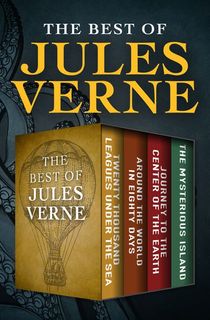
The Best of Jules Verne
None of the technology in Jules Verne’s books would make sense in a modern hard science fiction novel, but it’s worth remembering that Verne’s visions were, at the time, almost as credible as they were compelling. The author’s books are too old to seem strikingly realistic now, but they build on real technologies and real discoveries that were, in his time, cutting-edge. In fact, Verne is considered to be one of the founding fathers of hard science fiction–prior to 1870’s Twenty Thousand Leagues Under the Sea, the world had never seen a science fiction book that cared quite so much about the scientific details.
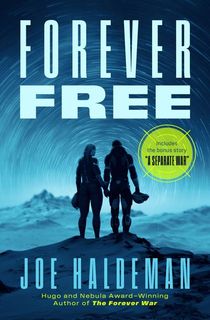
Forever Free
Haldeman’s The Forever War is a hard sci-fi classic, and so is this sequel, which includes all of the fascinating scientific background that The Forever War had while also bringing back William Mandella, the original novel’s protagonist. This time around, Mandella uses interstellar travel to age the universe around him (science!!!), allowing him, his family, and some other jaded companions to return to society 40,000 Earth years in the future–when, they hope, humanity will be a little less miserable than it had been in their own time. Without giving too much away, it’s worth noting that Haldeman uses this novel to blend hard sci-fi with something a bit more metaphysical.

Neuromancer
Neuromancer follows a classic storyline: Has-been hacker Henry Case is hired for one last job. The problem? After getting caught trying to steal from his employer, Case's central nervous system is damaged, cutting him off from the matrix.
That premise helped inspire another iconic story. The very term "matrix" became more famed for the Keanu Reeves film, but the hard science fiction cyberpunk novel is a classic in its own right. Neuromancer won the Hugo, Nebula, and Phillip K. Dick Awards while offering a compelling vision of humanity's future.

Red Mars
Red Mars marks the start of an incredible series by one of science fiction's most influential authors. While it's true that N.K. Jemisin became the first author to win the Hugo Award for every book in a trilogy, Kim Stanley Robinson only just missed out on this honor in the 1990s. Red Mars was nominated for Best Novel, while its sequels (Green Mars and Blue Mars) both earned the award.
The first book of the series follows 100 colonist who seek to terraform Mars into a more habitable place. They face terrible natural challenges, like hot gases that lie beneath the planet's surface, and deadly dust. Perhaps the biggest threat, however, comes from the people who want to prevent Mars from ever changing.
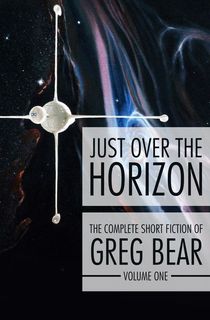
Just Over the Horizon
Greg Bear’s work delights in taking tricky scientific and science fiction concepts and crafting stories around them. Bear has a knack for turning hard science into real drama, and he also has a knack for effectively explaining all of the necessary science to his reader in a way that’s quick, clear, and compelling. You can watch him do this over and over again in Just Over the Horizon, a collection of Bear’s superb short stories.
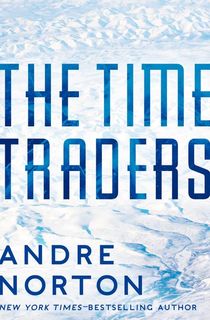
The Time Traders
The Time Traders was first published in 1958, but it got an update in 2000 when Norton made changes to account for real-world developments. The science in The Time Traders isn’t always made explicit or iron-clad (not, at least, by 2017 standards), but it’s a book that is committed to realism, and it’s as engaging now as it was in the 50s.
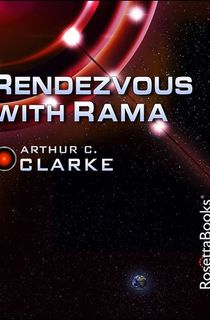
Rendezvous with Rama
It's hard to talk about hard science fiction without mentioning Arthur C. Clarke and this classic. A standard-bearer of the genre, Rendezvous with Rama won almost every notable award you can think of, including the Hugo and Nebula.
The novel details the story of a team of astronauts who are dispatched to examine an unidentified object headed toward the sun. The object turns out to be spacecraft with technology far more advanced than humankind's. One question remains, however: Where exactly are the aliens who must have built the ship?

Jurassic Park
Michael Crichton’s brand of hard science fiction is very daring: while most writers in this genre use their science facts to explain space travel, the future, and other far-away ideas, Crichton had a flair for justifying absurd fictions on present-day Earth. His scientific subjects tended to be cutting-edge in their times, and his explanations–while not perfect–are more than convincing enough to let the laypeople among us imagine that you really can clone dinosaurs, if you want to, and that it could go very, very wrong.

The Martian
If you think hard science fiction sounds too dry and nerdy to be fun, you need to read The Martian. Weir’s novel strands a NASA astronaut on Mars and tracks his efforts to survive and escape. Weir uses his hard science know-how in a gleeful way that’s reminiscent of Michael Crichton at his best. In The Martian, science is a co-conspirator, not a skeptic—it creates situations as weird and fun as any other genre of fiction.

The Three-Body Problem
Liu is the king of hard science fiction right now, and his Hugo-winning book, The Three-Body Problem, is his best work. Just how realistic is Liu’s science fiction? Try this on for size: The Three-Body Problem is named after a real-life math concept that Wikipedia describes as:
“The problem of taking an initial set of data that specifies the positions, masses, and velocities of three bodies for some particular point in time and then determining the motions of the three bodies, in accordance with Newton's laws of motion and of universal gravitation which are the laws of classical mechanics.”
Super simple stuff, right? Taking place during China’s Cultural Revolution, The Three-Body Problem tells the story of a project that sends signals into space in hopes of making contact with alien life…and what happens when an alien civilization captures that signal, but plans to destroy Earth.





